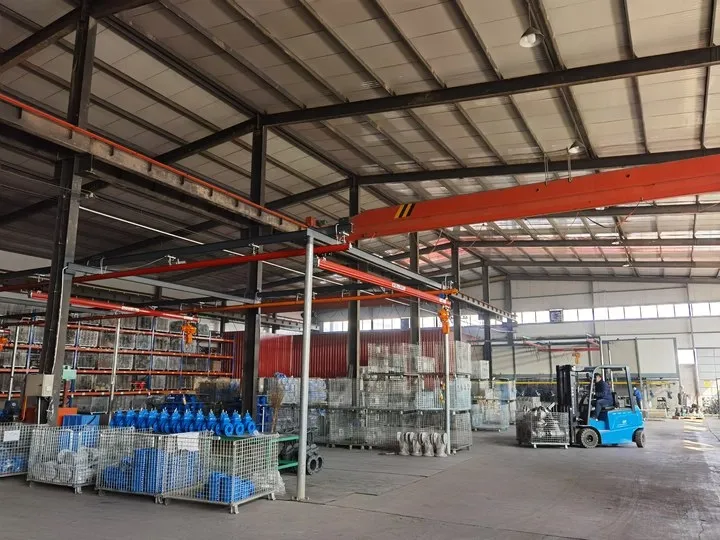Exploring the Functionality and Applications of Blank Valve Systems in Industrial Settings
Understanding Blank Valves A Comprehensive Overview
In the realm of fluid dynamics and process engineering, valves serve a critical function in controlling the flow, pressure, and direction of liquids and gases. Among the variety of valves available in the market, blank valves stand out as a significant type, especially in applications that require isolation or termination points for piping systems. This article explores the concept of blank valves, their applications, benefits, and considerations for implementation.
What is a Blank Valve?
A blank valve, often referred to as a blanking valve or blinds valve, is essentially a valve that is used to block off or seal a section of a piping system. Unlike traditional valves that regulate flow, blank valves are designed purely for the purpose of isolation. This can be particularly useful in maintenance situations where a segment of a pipeline must be serviced without interrupting the overall system's operation. Blank valves can be made from various materials, including metal, plastic, or composite materials, to suit different industrial environments.
Applications of Blank Valves
The applications of blank valves are vast and varied, encompassing numerous industries such as oil and gas, water treatment, HVAC (heating, ventilation, and air conditioning), and chemical processing. Here are some key areas where blank valves are commonly used
1. Pipeline Maintenance Blank valves are essential for safely isolating sections of pipelines during routine maintenance or emergency repairs. By sealing off specific areas, they prevent leaks and ensure worker safety.
2. Pressure Testing In many industries, it is critical to conduct pressure tests on pipelines to ensure their integrity. Blank valves are used to isolate sections of a system, allowing for accurate pressure readings without any external interference.
3. System Modifications When modifications or expansions are made to existing piping systems, blank valves can temporarily close off portions of the system, facilitating construction and adjustments without needing to shut down the entire operation.
Benefits of Using Blank Valves
Implementing blank valves in a piping system offers a range of significant benefits
blank valve

- Enhanced Safety By providing a reliable means to isolate sections of a system, blank valves contribute to greater safety for personnel, particularly during maintenance and emergency situations.
- Cost Efficiency By minimizing system downtime during maintenance or testing, these valves help reduce overall operational costs. They enable targeted interventions without shutting down entire systems, thus maintaining productivity.
- Versatility in Design Blank valves come in various sizes and materials, allowing them to be tailored to specific industry needs and environmental conditions.
- Ease of Use The installation and operation of blank valves are typically straightforward, making them accessible for various applications without requiring specialized training.
Considerations for Implementation
While blank valves provide numerous advantages, there are some considerations to keep in mind when selecting and implementing them in a system
- Material Selection It is vital to choose the appropriate material based on the medium being handled, environmental conditions, and potential exposure to corrosive elements.
- Size and Compatibility Ensuring that the blank valve fits correctly within the existing piping system is crucial to prevent leaks and maintain system integrity.
- Regulatory Compliance Depending on the industry, specific regulations and standards may dictate the design and use of blank valves. Adhering to these guidelines ensures compliance and enhances safety.
Conclusion
Blank valves play an invaluable role in maintaining the efficiency and safety of various fluid handling systems. Their ability to isolate specific sections of a pipeline ensures that maintenance can occur without disrupting overall operations, making them essential components in many industrial applications. As technologies and materials continue to advance, the effectiveness and versatility of blank valves will likely expand, contributing further to the field of process engineering and fluid dynamics. By understanding their benefits and proper applications, industries can leverage blank valves to optimize their systems and ensure a safe working environment.
-
Premium Remote Ball Valves for Automated & Safe OperationNewsSep.01,2025
-
The Advantages Of Steel Globe Valves For Industrial SystemsNewsAug.31,2025
-
Gate Valves: Key Components For Efficient Water Supply SystemsNewsAug.31,2025
-
Gas Isolation Ball Valves: Essential For Safe And Efficient Gas ManagementNewsAug.31,2025
-
Efficient Fluid Control With Flanged Ball ValvesNewsAug.31,2025
-
Choosing The Best Forged Steel And Cast Steel Lift Check Valves For Your SystemNewsAug.31,2025
-
Check Valves For Sale: Essential Components For Flow ControlNewsAug.31,2025




